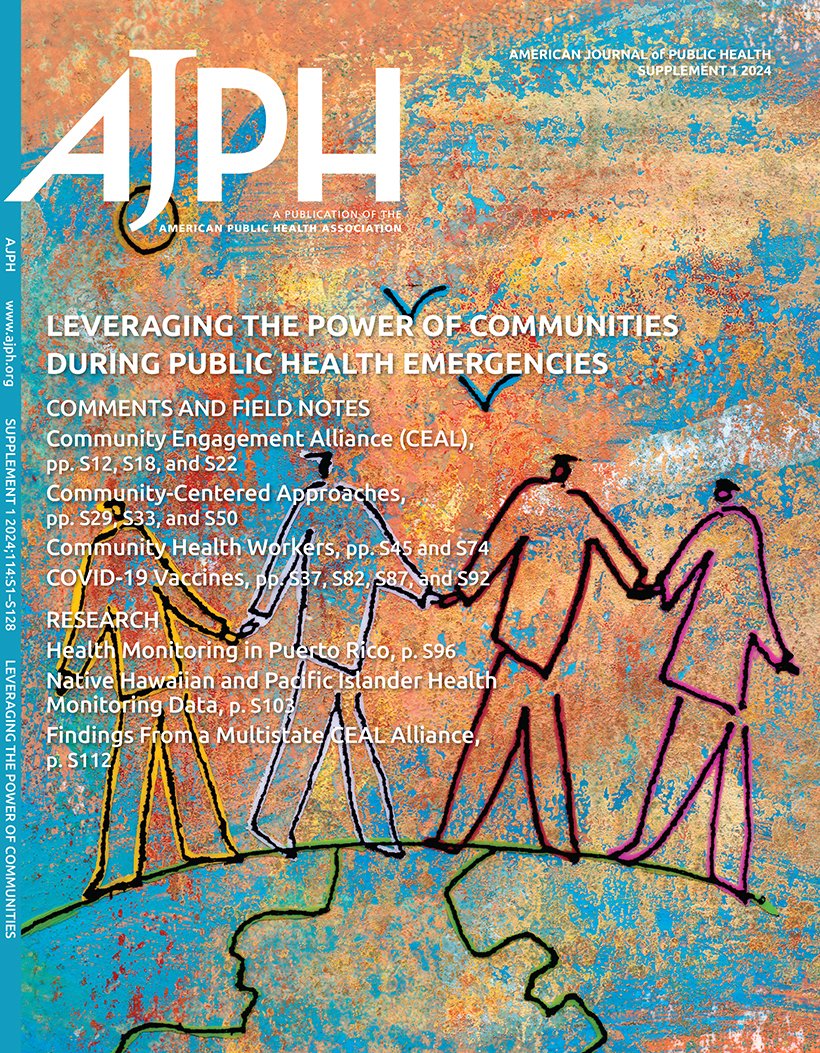黑人LGBTQIA+社区艾滋病定罪的宣言回应。
IF 9.6
1区 医学
Q1 PUBLIC, ENVIRONMENTAL & OCCUPATIONAL HEALTH
引用次数: 0
摘要
艾滋病毒定罪法规继续不成比例地影响黑人酷儿和跨性别者,特别是黑人跨性别者和性别扩张者以及性工作者,并且由于奴隶制遗留下来的不公平制度,历来是一种不公平地惩罚影响他们的疾病社区的方式。为了实现疾病控制和预防中心2030年在美国终结艾滋病毒流行的目标,必须采取大胆步骤,将艾滋病毒非刑事化,并质疑刑事化在强化耻辱、加剧健康的社会决定因素和进一步剥夺边缘化社区权利方面的作用。通过对种族资本主义理论的分析,我们的目的是提出将艾滋病毒完全非刑事化的论点,作为废除监狱和所有民族脱罪的最终目标的一小步。我们主张拒绝旨在使法规现代化的努力,这些法规进一步具体化监狱在资本主义社会中所起的惩罚性作用,并有系统地剥夺受艾滋病毒影响社区的自由权。多层次的政策必须解决艾滋病毒定罪的种族化性质。公共卫生。2025年5月15日在线出版:e1-e9。https://doi.org/10.2105/AJPH.2025.308110)。本文章由计算机程序翻译,如有差异,请以英文原文为准。
A Decarceral Response to HIV Criminalization in the Black LGBTQIA+ Community.
HIV criminalization statutes continue to disproportionately impact Black queer and trans individuals, particularly Black transgender and gender-expansive people and sex workers, and have historically served as a way to inequitably punish communities for a disease that affects them because of inequitable systems rooted in the legacy of slavery. To achieve the Centers for Disease Control and Prevention's 2030 goals for Ending the HIV Epidemic in the US, it is essential to take bold steps to decriminalize HIV and interrogate the role of criminalization in reinforcing stigma, exacerbating the social determinants of health, and further disenfranchising marginalized communities. Through the analysis of the theory of racial capitalism, we aim to make the argument for complete decriminalization of HIV as a small step in the ultimate goal of prison abolition and decarceration of all peoples. We advocate rejecting efforts aiming to modernize statutes that further concretize the punitive role prisons play in a capitalist society and systematically revoke HIV-affected communities' right to freedom. Multilevel policies must address the racialized nature of HIV criminalization. (Am J Public Health. Published online ahead of print May 15, 2025:e1-e9. https://doi.org/10.2105/AJPH.2025.308110).
求助全文
通过发布文献求助,成功后即可免费获取论文全文。
去求助
来源期刊

American journal of public health
医学-公共卫生、环境卫生与职业卫生
CiteScore
9.50
自引率
3.90%
发文量
1109
审稿时长
2-4 weeks
期刊介绍:
The American Journal of Public Health (AJPH) is dedicated to publishing original work in research, research methods, and program evaluation within the field of public health. The journal's mission is to advance public health research, policy, practice, and education.
 求助内容:
求助内容: 应助结果提醒方式:
应助结果提醒方式:


